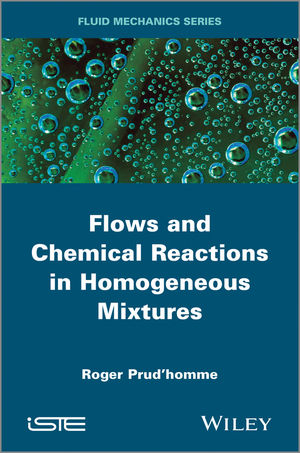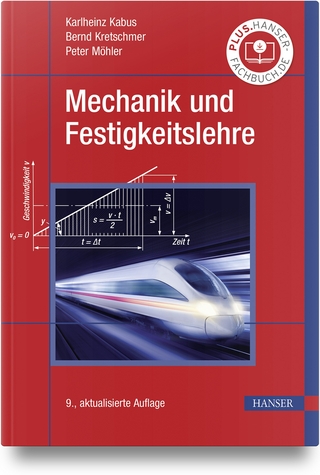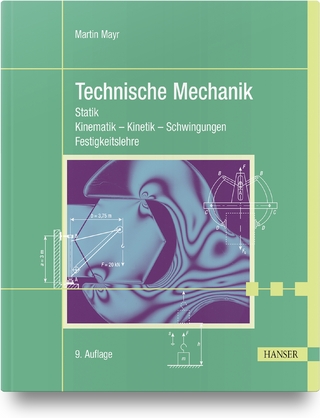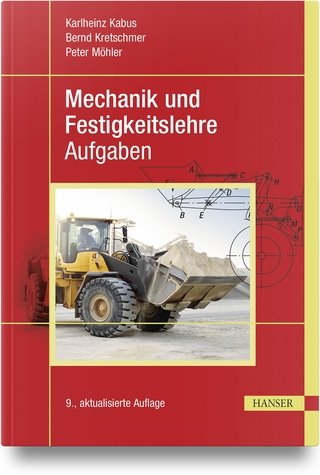
Flows and Chemical Reactions in Homogeneous Mixtures
ISTE Ltd and John Wiley & Sons Inc (Verlag)
978-1-84821-633-4 (ISBN)
The examples of application chosen in this book mainly concern homogeneous reactive mixtures that can occur in propellers within the fields of process engineering and combustion:
– propagation of sound and monodimensional flows in nozzles, which may include disequilibria of the internal modes of the energy of molecules;
– ideal chemical reactors, stabilization of their steady operation points in the homogeneous case of a perfect mixture and classical instruments of experimental and theoretical analysis such as population balances, and the distribution of residence and passage times;
– laminar and turbulent flames, separating those which are premixed from those which are not and which do not exhibit the same mechanisms, but which also occur in the case of triple flames.
Flows and Chemical Reactions in Homogeneous Mixtures provides information on dimensional analysis, statistical thermodynamics with coupling between internal modes and chemical reactions, the apparition and damping of fluid turbulence as well as its statistical processing, bifurcations, flames in a confined medium and diffusion.
Contents
1. Flows in Nozzles.
2. Chemical Reactors.
3. Laminar and Turbulent Flames.
Appendix 1. Dimensionless Numbers, Similarity.
Appendix 2. Thermodynamic Functions.
Appendix 3. Concepts of Turbulence.
Appendix 4. Thermodynamic functions for a mixture in disequilibrium.
Appendix 5. Notion of bifurcation.
Appendix 6. Confined flame.
Appendix 7. Limits of Validity of the First-order Expansions for Diffusion Flames.
Roger Prud’homme has been Emeritus Research Director at CNRS, in France, since 2004. His most recent research topics have included flames (premixed flame modeling and their behavior in microgravity), two phase flows (droplet combustion with condensation of the products, sound propagation in suspensions, vortex, chock wave structure) and the modeling of fluid interfaces. He has published 5 books, 7 contributions to volumes and 50 publications in international journals.
Symbols ix
Preface xxiii
Chapter 1. Flows in Nozzles 1
1.1. Sound propagation in the presence of chemical reactions 1
1.1.1. Thermodynamic considerations 2
1.1.2. Sound propagation in a mono-reactive medium 7
1.1.3. Sound propagation in a multi-reactive medium 12
1.2. Relaxed flows in nozzles 26
1.2.1. Calculation of a continuous flow with a recombination-dissociation reaction in a de Laval nozzle 27
1.2.2. Asymptotic study of the transonic zone of a continuous monodimensional flow in a de Laval nozzle 31
1.3. Flows in thermal and chemical non-equilibrium 35
1.3.1. Balance equations and closure relations in the presence of thermal and chemical non-equilibria 35
1.3.2. Application 37
1.4. Conclusion about flows in nozzles 45
Chapter 2. Chemical Reactors 47
2.1. Ideal reactors, real reactors, balance equations 48
2.1.1. Ideal chemical reactors 48
2.1.2. Balance equations for chemical reactors 50
2.2. Perfectly mixed homogeneous chemical reactors 55
2.2.1. Equations for a perfectly stirred homogeneous chemical reactor 55
2.2.2. Steady regimes in perfectly stirred homogeneous chemical reactors 59
2.2.3. Stability of operating points in the perfectly stirred homogeneous chemical reactor 61
2.3. Tubular reactor 67
2.3.1. Plug flow reactor 68
2.3.2. Reactor with axial mixing 70
2.3.3. Reactor with radial mixing 73
2.4. Residence time distribution 74
2.4.1. Balance equations 74
2.4.2. Perfectly stirred homogeneous reactors in a steady regime 76
2.4.3. Plug flow reactors 76
2.4.4. Poiseuille flow 76
2.4.5. Real reactors 78
Chapter 3. Laminar and Turbulent Flames 79
3.1. Laminar premixed combustion 79
3.1.1. Rankine-Hugoniot theory 80
3.1.2. Velocity and structure of the plane adiabatic laminar and steady premixed flame 87
3.1.3. Other examples of a steady laminar premixed flame 91
3.2. Laminar non-premixed combustion 95
3.2.1. Burke–Schumann problem 95
3.2.2. Other examples of diffusion flames 98
3.3. Turbulent combustion 104
3.3.1. Averaged balance equation for turbulent combustion 105
3.3.2. Premixed turbulent combustion regimes 107
3.3.3. Non-premixed turbulent combustion regimes 110
3.3.4. Models of turbulent combustion 112
3.3.5. LESs in combustion 119
3.3.6. Triple flames 121
APPENDICES 125
Appendix 1. Dimensionless Numbers, Similarity 127
A1.1. Fundamentals of dimensional analysis: groups 128
A1.1.1. Basic considerations 128
A1.1.2. Vaschy–Buckingham theorem (1890) or Π theorem 129
A1.1.3. Practical advantage to dimensional analysis 130
A1.1.4. Example of application: head loss in a cylindrical pipe 130
A1.2. Similarity 132
A1.2.1. Definition 132
A1.2.2. Application: condition of similarity in a soft balloon placed in a current of air with a given velocity 133
A1.3. Analytical searching for solutions to a heat transfer problem (self-similar solution) 135
A1.4. Some dimensionless numbers 137
Appendix 2. Thermodynamic Functions 141
A2.1. General points 141
A2.2. Translational motion 142
A2.3. Internal motions 143
A2.3.1. Monatomic species 143
A2.3.2. Diatomic species 145
A.2.3.3. Linear polyatomic species 146
A2.3.4. Nonlinear polyatomic species 147
Appendix 3. Concepts of Turbulence 149
A3.1. Experimental demonstration 151
A3.1.1. Reynolds’ experiment 151
A3.1.2. Viscous flow over a smooth plane plate 152
A3.1.3. Effect of roughness of the plate 153
A3.1.4. Effect of turbulence on chemical reactivity 153
A3.2. Apparition and damping of turbulence 154
A3.2.1. Instability between two superposed fluids 154
A3.2.2. Instability of a fluid between two rotating cylinders 158
A3.2.3. Instability of a premixed flame 165
A3.2.4. Damping of turbulence 169
A3.3. Classic turbulence (RANS model) 170
A3.3.1. Turbulent transfer and chemical kinetics coefficients 170
A3.3.2. Remarks about averages and scales 176
A3.3.3. models (closure for transfer terms) 178
A3.3.4. Spectral analysis and Kolmogorov’s theory 181
A3.4. Ideas about large eddy simulation 185
A3.4.1. Filtering 187
A3.4.2. Filtered balance equations for a non-reactive incompressible fluid 189
A3.4.3. Closure relations for the filtered balance equations 190
A3.5. Conclusion 193
Appendix 4. Thermodynamic functions for a mixture in disequilibrium 195
A4.1. Thermodynamics 195
A4.2. Chemistry 197
A4.3. Vibration 197
Appendix 5. Notion of bifurcation 199
Appendix 6. Confined flame 201
Appendix 7. Limits of Validity of the First-order Expansions for Diffusion Flames 203
A7.1. Burke–Schumann flame 203
A7.2. Juxtaposed oxidizer/fuel flows from rectangular burners 204
Bibliography 207
Index 219
| Verlagsort | London |
|---|---|
| Sprache | englisch |
| Maße | 164 x 241 mm |
| Gewicht | 590 g |
| Themenwelt | Naturwissenschaften ► Physik / Astronomie ► Mechanik |
| Technik ► Maschinenbau | |
| ISBN-10 | 1-84821-633-5 / 1848216335 |
| ISBN-13 | 978-1-84821-633-4 / 9781848216334 |
| Zustand | Neuware |
| Haben Sie eine Frage zum Produkt? |
aus dem Bereich


